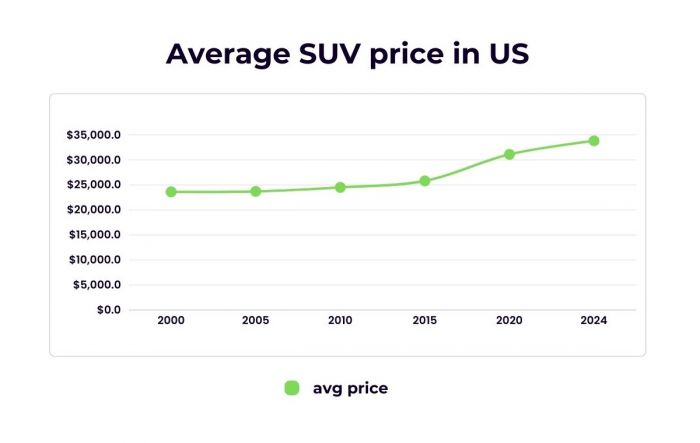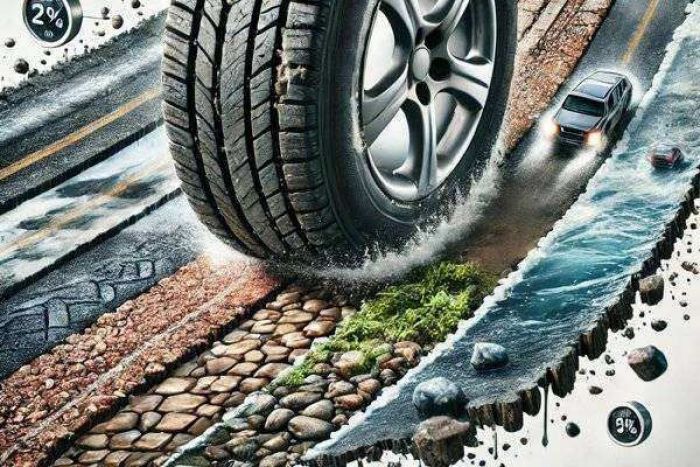There are only a few things more destabilizing than driving on the highway and suddenly hearing a knocking sound from your vehicle's engine. Even worse is if the car loses power right there in the middle of traffic. Unfortunately, several KIA owners have been in this situation or a similar one.
Engine noises highlights
- Level of importance:High
- Commonreasons:All kinds of various problems, hard to list promptly
- DIY inspection:Possible but may be complicated
- DIY repair:Impossible, in most cases
- Price for repair:$150 - $1,000
- Can you drive?Usually, yes
- Ways to fix:Locate the source for the sound and repair the system that needs help
.jpg)
Why Your KIA Engine is Knocking
A knocking noise coming from your KIA engine is not just annoying but also a sign of a potentially serious problem.
Engine knocking occurs when the fuel in the engine detonates prematurely, causing a knocking or pinging sound. There are several reasons why this may happen, and identifying and addressing the issue as soon as possible can help prevent further damage to your vehicle.
Here are some common causes of KIA engine knocking:
- Low-quality fuel:Using low-quality fuel or fuel with a lower octane rating than recommended can cause knocking. The lower octane rating means the fuel is less resistant to detonation, which can lead to knocking.
- Overheating: If the engine is running too hot, your KIA engine can knock. Overheating can be the result of a faulty or clogged radiator or a malfunctioning thermostat.
- Incorrect timing:The timing of the spark plugs firing can also cause knocking. When the timing is off, the fuel detonates prematurely, leading to a pinging sound.
- Wear and tear:Over time, wear and tear on the engine can make it knock. A faulty valve, worn-out spark plugs, or damaged pistons can trigger are some examples of expected wear and tear from overuse.
- Carbon build-up:Carbon build-up in the engine is often the result of driving short distances frequently, which doesn't allow the engine to reach its optimal operating temperature and burn off carbon deposits.
- Incorrect spark plug gap: The spark plug gap is the space between the electrodes of the spark plug. If the gap is too wide or too narrow, it can cause knocking in your KIA engine.
Symptoms of a Knocking KIA Engine
Engine knocking can lead to engine damage and reduced performance, so identifying it as soon as possible goes a long way.
- Pinging sound
One of the most common symptoms to look out for is a knocking or pinging sound coming from your KIA engine. This sound is usually more noticeable when the engine is under a load, such as when accelerating or climbing a hill. You may also notice a decrease in engine power and fuel efficiency.
- Check engine light on
Another symptom to look out for is the check engine light on your dashboard coming on. This could indicate a problem with your ignition system or fuel system, which can cause engine knocking.
- Decreased fuel efficiency
Engine knocking can lead to decreased fuel efficiency since the engine is not functioning as efficiently as it should be. If you notice that your KIA vehicle is using more fuel than usual, this could be a sign of engine knocking.
- Loss of power
You may also experience a loss of power and torque in your KIA vehicle. Pay attention to whether or not your vehicle is performing as well as it used to.
Diagnosing and Fixing a Knocking KIA Engine
If you suspect that your KIA engine is knocking, there are a few ways you can identify and diagnose the problem. Here are some steps to follow:
Step 1: Listen for knocking sounds
One of the most obvious signs of engine knocking is a knocking or pinging noise coming from the engine. This sound is usually louder when the engine is under load. If you've heard this noise, proceed to figure out what exactly is wrong
Step 2: Check the engine knock sensor
KIA engines are equipped with a knock sensor that is designed to detect knocking and adjust the ignition timing to prevent it. If the knock sensor is faulty, it may not be able to properly detect knocking, leading to engine damage. To check the knock sensor, you will need to access the wiring harness and test the sensor with a diagnostic tool.
Step 3: Inspect the spark plugs
Worn or damaged spark plugs can cause engine knocking, especially if the plugs have gaps that are too wide or too narrow. To check the spark plugs, you will need to remove them from the engine and inspect them for any visible signs of wear or damage.
Step 4: Check the fuel quality
Poor quality fuel can also cause engine knocking. If you have been using low-grade gasoline or fuel that has been contaminated with water or other adulterants, it can lead to knocking. You can have a fuel system cleaning performed or have a sample of the fuel analyzed by a laboratory to check the fuel quality.
Step 4: Check the engine timing
Your KIA engine can knock if the engine timing is off. You will need to use a diagnostic tool to determine the ignition timing. If the timing is off, it may need to be adjusted by a mechanic.
If you cannot identify the cause of the knocking on your own, consider taking your KIA to a mechanic for a diagnostic test. They will be able to pinpoint the source of the issue and recommend the necessary repairs.
Preventing KIA Engine Knocking Issues
Knocking in a KIA engine can be a major concern for any driver. As you now know, several issues can cause this abnormal noise, often described as a metallic knocking or pinging sound.
So, what can you do to prevent your KIA engine from knocking? Here are a few tips to keep your engine running smoothly:
- Use the recommended grade of gasoline:One primary cause of engine knocking is using gasoline with a lower octane rating than recommended by the manufacturer. To prevent knocking, use the recommended grade of gasoline as indicated in your owner's manual or by the fuel pump.
- Keep your engine well-maintained:Regular maintenance, including regular oil changes and using high-quality oil, can help prevent engine knocking. Additionally, be sure to keep your KIA up to date on all recommended maintenance services to ensure that all parts are functioning properly.
- Avoid overloading your vehicle:If you regularly drive with a heavy load or tow large items, your engine may be more prone to knocking. Try to avoid overloading your vehicle to reduce the risk of knocking.
- Monitor your spark plugs:Spark plugs play a crucial role in the ignition process of your KIA engine. Regularly check and replace your spark plugs as needed to prevent knocking.
- Use fuel additives: Fuel additives can help prevent knocking by reducing the amount of carbon buildup in your engine. Look for additives that are specifically designed to prevent knocking and follow the manufacturer's instructions for use.
Should You Drive with a Knocking KIA Engine?
Driving your KIA with a knocking engine is not recommended since this problem is usually caused by an issue with the engine's internal components, such as the pistons or connecting rods. This can lead to serious engine damage if left unchecked, and driving with a knocking engine can cause further harm to your car.
The knocking sound is a clear indication that something is wrong with your engine, and driving it will only make the issue worse. It could potentially lead to a complete engine failure, which can be costly to fix and could even leave you stranded on the road.
If you notice a knocking noise coming from your KIA engine, it's best to stop driving immediately and have it checked out by a mechanic. Continuing to drive with a knocking engine can lead to reduced fuel efficiency, poor performance, and even engine failure.
And if you are in a situation where you need to drive with a knocking engine, take extra precautions to avoid additional damage. These include driving at a slower speed, avoiding heavy acceleration, and keeping an eye on your car's temperature gauge to ensure it doesn't overheat.
Conclusion
Engine knocking in a KIA vehicle can be a serious issue that you should never ignore. Address this problem as soon as possible to avoid further damage to the engine and potentially costly repairs. By regularly maintaining your KIA and using high-quality gasoline, you can help prevent engine knocking and keep your vehicle running smoothly.
However, if you do experience engine knocking, have it checked out by a professional mechanic to determine the cause and take appropriate action. Ignoring the problem can lead to more serious issues and ultimately result in a costly repair or even engine failure.
About the authors
The CarAraC research team is composed of seasoned auto mechanics and automotive industry professionals, including individuals with advanced degrees and certifications in their field. Our team members boast prestigious credentials, reflecting their extensive knowledge and skills. These qualifications include: IMI: Institute of the Motor Industry, ASE-Certified Master Automobile Technicians; Coventry University, Graduate of MA in Automotive Journalism; Politecnico di Torino, Italy, MS Automotive Engineering; Ss. Cyril and Methodius University in Skopje, Mechanical University in Skopje; TOC Automotive College; DHA Suffa University, Department of Mechanical Engineering






Add comment